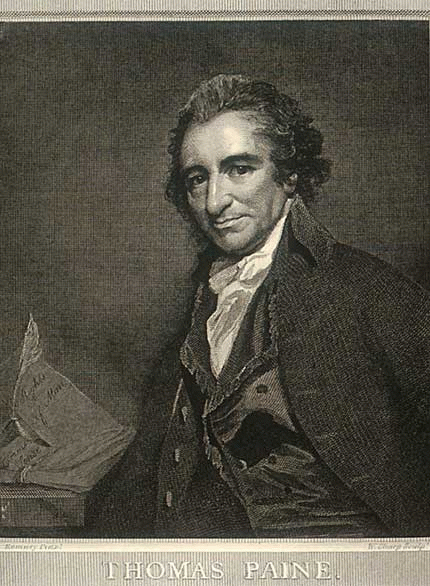
William Sharp (1749–1824), after George Romney Engraving, 1793
(Image by National Portrait Gallery, Public Domain) Details DMCA
Modern Conservatism; Or Who Says That We're Our Brother's Keepers
Part 3: Cutting Our Own Throats Part One
By Richard Girard
"All government, indeed every human benefit and enjoyment, every virtue, and every prudent act, is founded on compromise and barter. We balance inconveniences, we give and take--we remit some rights that we may enjoy others.... Man acts from motives relative to his interests: and not on metaphysical speculations."--Edmund Burke; Speech on Conciliation with America; 22 March 1775.
"With great power comes great responsibility." --Peter Parker, The Amazing Spider-Man; Marvel Comics, 1963.
Relative Equality is a Prerequisite For a Healthy Society
For the 2 February 2014 entry on the New York Times Opinionator Blog, "The Great Divide," Richard Wilkinson and Kate Pickett wrote a piece titled, "How Inequality Hollows Out the Soul," discussing the effects of the widening gap between rich and poor in the Western democracies. In their opening paragraphs, Wilkinson and Pickett make the following statement:
"One of the well-known costs of inequality is that people withdraw from community life and are less likely to feel that they can trust others. This is partly a reflection of the way status anxiety makes us all more worried about how we are valued by others. Now that we can compare robust data for different countries, we can see not only what we knew intuitively--that inequality is divisive and socially corrosive--but that it also damages the individual psyche.
"Our tendency to equate outward wealth with inner worth invokes deep psychological responses, feelings of dominance and subordination, superiority and inferiority. This affects the way we see and treat one another."
Later in the piece, Wilkinson and Pickett point out the increasing evidence of psychological harm in the form of neuroses and character disorders (psychoses) that the widening gap between rich and poor seem to be creating:
"In a study published in 2012, Sheri L. Johnson, a psychologist at the University of California, Berkeley, and colleagues reviewed a vast body of evidence from biological, behavioral and self-reported accounts, and concluded that a wide range of mental disorders might originate in a 'dominance behavioral system.' This part of our evolved psychological makeup, almost universal in mammals, enables us to recognize and respond to social ranking systems based on hierarchy and power. One brain-imaging study discovered that there were particular areas of the brain and neural mechanisms dedicated to processing social rank.
"Ms. Johnson concludes that psychiatric conditions like mania and narcissism are related to our striving for status and dominance, while disorders such as anxiety and depression may involve responses to the experience of subordination. Similarly, she suggests that the pressures of coping with social hierarchies may contribute to other conditions such as antisocial personality disorder and bipolarism."
Wilkinson and Pickett conclude their piece with the following three paragraphs:
"In the United States, research psychologists have shown that narcissism rates, as measured by a standard academic tool known as the Narcissistic Personality Inventory, rose rapidly from the later 1980s, which would appear to track the increases in inequality. The data all point to the fact that as larger differences in material circumstances create greater social distances, feelings of superiority and inferiority increase. In short, growing inequality makes us all more neurotic about 'image management' and how we are seen by others.
(Note: You can view every article as one long page if you sign up as an Advocate Member, or higher).





